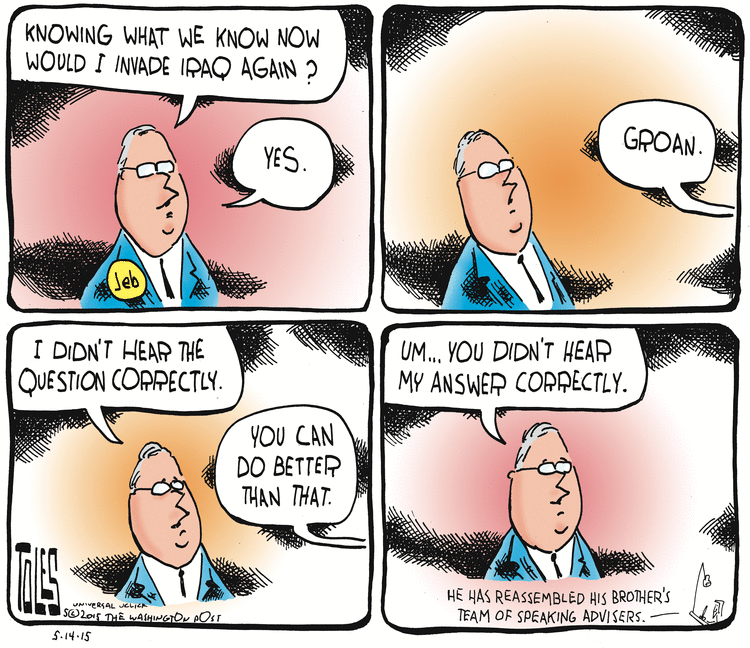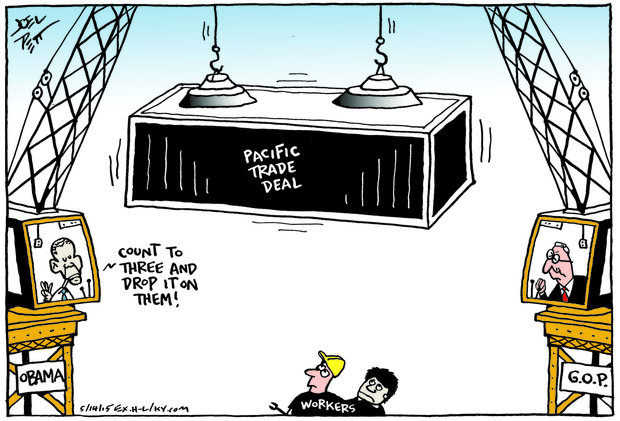The “lawgivers” in DC moved forward on two deeply held Republican ideas this week, and neither stand up to close inspection.
Yesterday, the Senate passed a bill banning torture. It is an amendment to the National Defense Authorization Act that will permanently bar the “enhanced interrogation techniques” that were used by the CIA during the George W. Bush administration. It passed 78-21. It limits the interrogation of detainees by any US government employee or agent to only using techniques that are listed in the publicly available Army Field Manual on human intelligence collection. This is a good thing.
The 21 no votes, which are really a vote for torture, were all by Republicans. That’s 21 US Senators, all from one political party, including the Senate Majority Leader and his Majority whip, who voted to continue torture as an official policy of the US government.
Presumably, these 21 will run on their support for torture the next time they come up for re-election. Interestingly, the vote split Texas’ two Republican Senators, with Cruz voting for the bill, and Cornyn voting against it. The Houston Chronicle quoted an aide to Cornyn:
The senator is concerned that limiting intelligence professionals and law enforcement to interrogation techniques detailed in publicly available manuals would give would-be terrorists the ability to train and prepare against them.
Really? You think it is possible for the average jihadist to “prepare” for the techniques described in the Army Field Manual? And that preparation will compromise our intelligence gathering? As Charlie Pierce said:
This country can be America, or it can be a country that tortures. It cannot be both.
Next, the House Appropriations Committee on Tuesday released a fiscal year 2016 funding proposal that, among its provisions:
• Dismantles the Affordable Care Act
• Eliminates funding for the Title X family planning program
• Includes something called the Health Care Conscience Rights Act that is essentially more Hobby Lobby, although on steroids
It would eliminate Title X funding unless the program meets a certain ideological (read: abstinence-focused) criteria:
None of the funds appropriated in this Act may be made available to any entity under title X of the Public Health Service Act unless the applicant for the award certifies to the Secretary that it encourages family participation in the decision of minors to seek family planning services and that it provides counseling to minors on how to resist attempts to coerce minors into engaging in sexual activities.
And here’s the part of the proposal that would let your school or boss determine whether or not your insurance covers contraception or any other form of healthcare they may not like:
Notwithstanding any other provision of this title, no provision of this title (and no amendment made by any such provision) shall… require a sponsor (or, in the case of health insurance coverage offered to students through an institution of higher education, the institution of higher education offering such coverage) to sponsor, purchase, or provide any health benefits coverage or group health plan that includes coverage of an abortion or other item or service to which such sponsor or institution, respectively, has a moral or religious objection, or prevent an issuer from offering or issuing to such sponsor or institution, respectively, health insurance coverage that excludes such item or service.
Yes, it enables more unwanted pregnancies, less breast and cervical cancer screenings, more undiagnosed sexually transmitted diseases, and more economic burdens pushed onto the states.
According to a data from the Guttmacher Institute, each dollar invested in Title X saves $3.80 in Medicaid expenses related to pregnancy and childbirth. Another Guttmacher analysis found that the services provided by Kansas’ Title X clinics in 2010 helped save the state more than $61,000,000 in public funds. According to the report:
That accounts for savings from reduced maternity and birth-related costs, along with reduced costs related to miscarriage and abortion and savings related to [sexually transmitted infection] screening and cervical cancer prevention services.
You can certainly count on Republicans. If there is an efficacious solution to a problem, as in this case, you can disregard it for a faith-first solution that costs more, while creating unnecessary cruelty and inhumanity.
Republicans want to stand the First Amendment on its head.
This is who they are. They will piss on the Pope if he speaks about climate change. And their leadership, plus a total of 39% of Republicans in the Senate support torture, since torture seems mas macho.
You have a chance on Election Day to tell them what you think about their “conscience”!


















